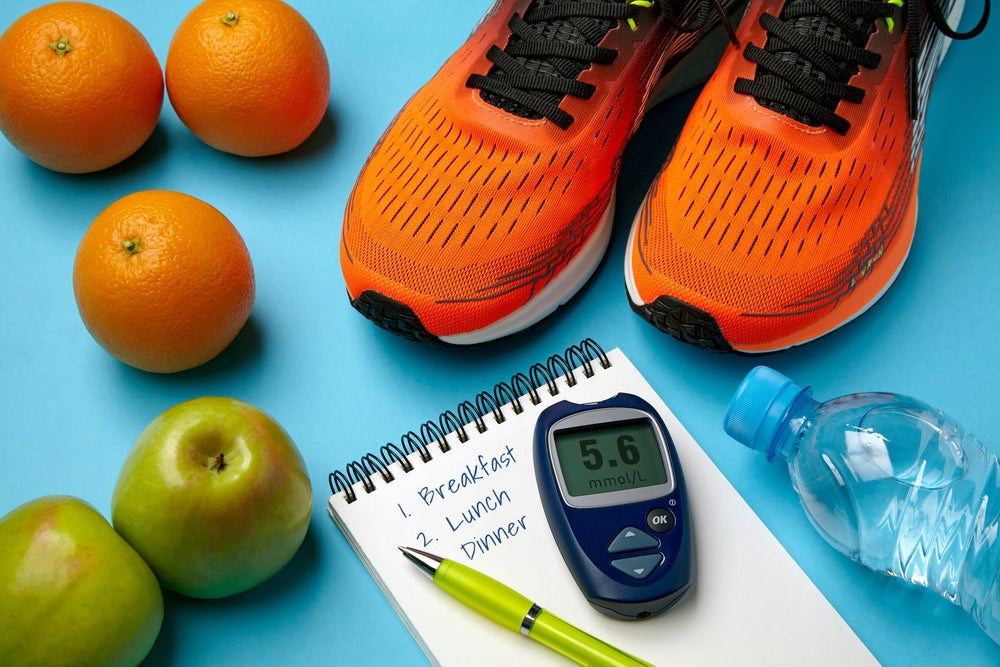Tips to prevent diabetes

Maintaining good health is essential and should be a priority for everyone, recognizing that our habits play a crucial role in our long-term well-being.
What is diabetes?
Diabetes is a chronic disease that affects the body's metabolism and is characterized by elevated blood glucose levels. In diabetes, the main organs affected are blood vessels, eyes, kidneys, and nerves.
There are two main types of diabetes:
• Type 1 Diabetes, where the pancreas is unable to produce insulin, the hormone that regulates blood glucose levels.
• Type 2 Diabetes, also known as "diabetes mellitus," which is characterized by resistance to the action of insulin.
People diagnosed with diabetes, in addition to their medical treatment that includes insulin, can improve their lifestyle and reduce the complications of the disease through habit changes. Likewise, those with sick family members looking for strategies to prevent the onset of symptoms can immediately start taking action.
Understanding this, we suggest some small changes in your daily routine that can contribute to preventing diabetes or helping to reduce its complications.
Maintain a healthy weight
Reducing excess body fat in overweight individuals decreases the risk of developing diabetes.
Exercise
Physical activity can help you control your glucose levels, lose weight, and even increase your insulin sensitivity. We recommend doing aerobic and resistance exercises, avoiding prolonged periods of inactivity.
Eat a healthy diet
A balanced diet is essential. Vegetables and fruits, for example, contain vitamins, minerals, and fiber, which help regulate metabolism and control glucose levels and inflammation.
Some foods we recommend including in your daily diet are: tomatoes, peppers, broccoli, cauliflower, beans, chickpeas, whole grains, and oats.
Consume good fats
According to our country's Health Secretariat, monounsaturated and polyunsaturated fats, known as "good fats," are essential as the body cannot produce them. You can find them in foods like salmon, sardines, tuna, olive oil, cinnamon, safflower, sunflower, corn, and soy.
Dietary supplements
While dietary supplements are not magic solutions, they can be useful by providing additional nutrients and enhancing certain natural body functions. In this context, we recommend three supplements that will help you prevent diabetes.
• Guanide: This supplement contains Goat's Rue, L-Arginine, and L-Glycine, which work together to support the body's processes in regulating blood glucose levels and optimizing stored energy in the body.
• Enikia: Contains L-Glycine, L-Arginine, Resveratrol, and L-Cysteine, together contributing to maintaining your metabolism in shape, promoting cell regeneration, reducing oxidative stress, and helping to optimize blood glucose regulation processes.
• Caldone: The turmeric in this supplement is a natural anti-inflammatory that can reduce inflammation related to insulin resistance, a risk factor for diabetes. Additionally, it improves digestion, so your digestive system will be grateful.
These supplements are allies to your habit changes. Additionally, the technology used in their production provides each product with additional benefits, such as better absorption compared to products available on the market. You can find them all in Nanopharmacia's online store.
References:
• Federación Española de Diabetes FEDE. (2019). Prevention of Diabetes. Federación Española de Diabetes FEDE. Link
• Instituto Mexicano del Seguro Social. (2016, July 13). Good and Bad Fats, Each Person Decides. Link
• Mayo Clinic. (2023). Diabetes Prevention: 5 Tips for Taking Control. Link

